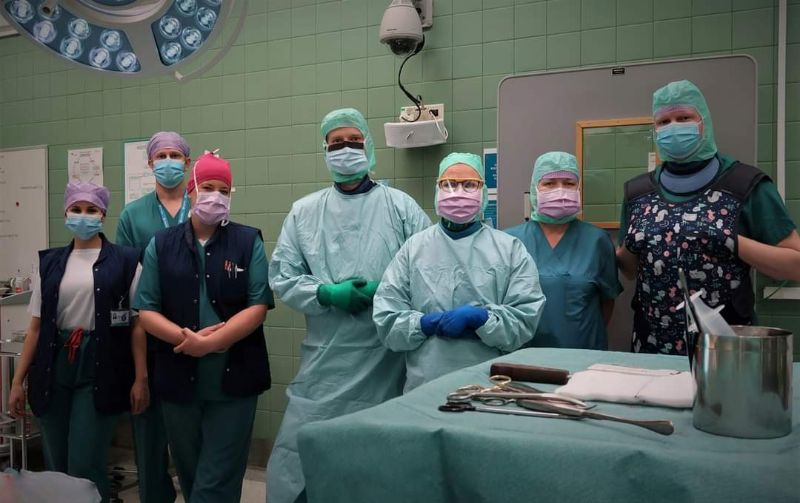Practical nurse technician
"Practical nurse technicians work in very different tasks. Some work in the operating room, like me, while others might work at the emergency clinic, in an ambulance or as a preparator at the morgue. There are hardly any practical nurse technicians working in the private sector, and not even in all public hospitals. No two days are alike in this job, so you are not likely to get bored."

- Turkka Miettinen
- Practical Nurse Technician at HUS.
- Paramedic Practical Nurse degree from the Helsinki School of Nursing.
- 25 years of work experience in the field.
Briefly explain what you do for a living.
I work as a practical nurse technician in the orthopaedics and traumatology surgery ward. Orthopaedic operations are surgical procedures for treating musculoskeletal disorders and injuries. My job involves placing patients in the surgical position, operating the X-ray machine during surgery, and surgical casting in the operating room.
How have you ended up in the profession of your choice?
After completing my general upper secondary education, I worked as a sports facility manager at the sports department of the City of Helsinki for about a year before starting my military service. After that, I started working as a hospital porter at the Lauttasaari health centre. After just over a year, I applied to study for a Paramedic Practical Nurse degree.
Describe your typical working day or week.
When I come in for the morning shift, I first check if anything has happened during the night shift that would affect the schedule of the morning shift. After that, I start preparing the operating rooms. The operating tables are prepared according to the position in which the patient will be during surgery.
When patients arrive, I begin preparing their moves and surgical positions. Operations typically take 2–3 hours, but can sometimes be up to 8 hours long. Once the operating rooms are ready, there is usually time for a coffee break before new patients come in and I resume taking X-rays and casting. Morning shifts are usually a little busier than other shifts.
What kind of work environment or working hours do you have?
I work in the hospital environment in three shifts. I also give monthly lectures and hold training sessions in educational institutions and other hospitals.
What kind of competence or qualities are required in the profession?
The work of a practical nurse technician has changed a lot over the years. The importance of technical competence has grown enormously with 3D imaging, for example. In other words, this job requires a desire to learn new things. Social skills are also needed to be able to work as a team. Casting requires some manual skill and dexterity.
What is the best thing about your profession?
The best part of the work of a practical nurse technician is working as a team, and the feeling of success that come with it. Of course, helping people is rewarding in general.
What are the downsides of the profession or what seems challenging?
I can't really think of any drawbacks. Working three shifts could be unpleasant for some people, but I like it.
What would you tell a person considering the profession of a practical nurse?
Practical nurse technicians work in very different tasks. Some work in the operating room, like me, while others might work at the emergency clinic, in an ambulance or as a preparator at the morgue. There are hardly any practical nurse technicians working in the private sector, and not even in all public hospitals. No two days are alike in this job, so you are not likely to get bored. I encourage everyone to give this profession a chance, to find out whether this would be the right job for you.
How do you see the future of your profession?
I believe that practical nurse technicians will continue to be needed in the future. We are experts in surgical positions and X ray imaging, and the need for this expertise is not going to decrease. The importance of IT skills will also continue to increase in the work of a practical nurse technician.
